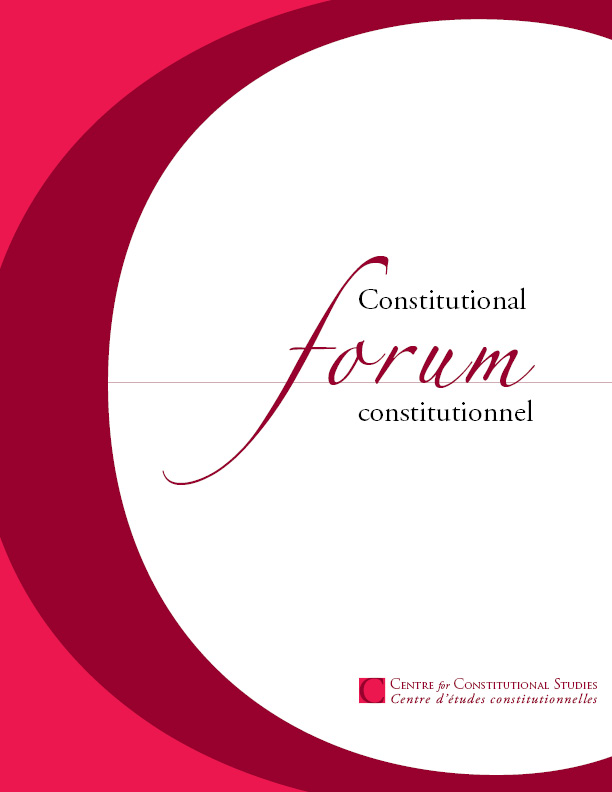What happens when the assumptions underlying our commitment to free speech no longer hold?
DOI:
https://doi.org/10.21991/cf29373Abstract
A commitment to freedom of expression means that an individual must be free to speak to others and to hear what others may say, without interference from the state. It is said that the answer to bad or erroneous speech is not censorship, but rather more and better speech. Importantly the listener, and not the speaker, is seen as responsible (as an independent agent) for his or her actions, including harmful actions, whether these actions occur because he or she agrees or disagrees with the speaker’s message.
Downloads
Published
Issue
Section
License
Authors who publish with Constitutional Forum constitutionnel grant the journal the right of first publication, and agree to license the work under an Attribution-NonCommercial-NoDerivs (CC BY-NC-ND) that allows others to share the work for non-commercial purposes, with an acknowledgement of the work's authorship and initial publication in this journal, as long as no changes are made to the original work. Please use this format to attribute this work to Constitutional Forum constitutionnel:
"First published as: Title of Article, Contributor, Constitutional Forum constitutionnel Volume/Issue, Copyright © [year], Publisher"





